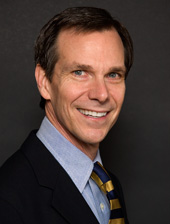Postcard from Asheville
April 2013
Do You Believe in Magic?
In 1950, for some inexplicable reason, all fifteen members of a church choir in Beatrice, Nebraska,were late for practice; their tardiness saved their lives. An explosion leveled the church minutes after choir practice was to begin. Coincidence? I don’t think so. I choose to believe in the magic.
A while ago, I attended a weekend meditation retreat. I was nervous. I walked into the room and heard someone call out my name. In the corner sat a friend; I had just run into her that morning at Pilates class. We hadn’t seen each other in months. She motioned for me to sit next to her. My anxiety dissipated. Coincidence? I don’t think so. I choose to believe in the magic.
Swiss psychologist Carl Jung called these events “synchronicities” or "temporally coincident occurrences of acausal events." Synchronicity can be described as the “magical” coming together of events. They are the types of “coincidental” occurrences that make us sit up and take notice, or as I like to call them, “God’s winks.”
Some scientists see a theoretical grounding for synchronicity in quantum physics, fractal geometry, and chaos theory. They are finding that the isolation of objects, the separation between them, is based more on our perception than on reality. At deeper levels, everything—atoms, cells, molecules, plants, animals, and people—is bound together in a sensitive, flowing web of information. Physicists have shown, for example, that if two photons are separated, no matter by how far, a change in one creates a simultaneous change in the other.
Think of this principle in terms of humans. We hear about a man running out to help someone trapped under a car. Suddenly, others rush in to help. And, of course, we hear negative stories along the same lines. One person in a brokerage firm gets greedy and soon his colleagues are bilking their clients too. Coincidences? Maybe not.
Whatever its cause, for many the appeal of synchronicity runs deep. "People love mysterious things, and synchronicity is like magic happening to them," says Carolyn North, author of Synchronicity: The Anatomy of Coincidence (Regent Press). "It gives us a sense of hope, a sense that something bigger is happening out there than what we can see, which is especially important in times like this when there are so many reasons for despair."
In an article in the Sunday, April 8, 2012,New York Times, writer Mathew Hutson refers to research conducted by Laura Kray at the University of California–Berkeley in which subjects reflected upon a turning point in their lives. The more the subjects believed the turning point had been fated, the more they believed, “It made me who I am today,” or “It gave meaning to my life.”
In another study conducted by psychologist Kenneth Pargament of Bowling Green State University, students who saw a negative event as a “part of God’s plan” showed more growth later on and became more open to new perspectives, more intimate in relationships, and more persistent in overcoming challenges.
How about you? Do you believe life events are random, or do you believe—as I do—in the magic?



